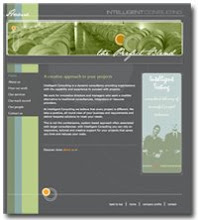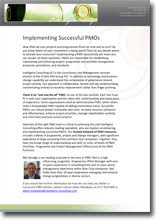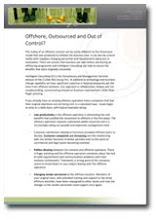The outcome of the Scottish referendum is becoming less and less predictable, but either way there will be an impact on the job market which we would be wise to prepare for. Scotland is the best performing of the four UK nations in unemployment rates. If Scotland votes ‘No’, then we will keep the 1 in 10 Scottish jobs linked to trade in the UK, that’s ‘nearly 1 million Scottish jobs’ which are closely woven into the fabric of the UK’s labour economy. But what impact would the unravelling of this relationship have on the UK job market?
John Swinney (Cabinet Secretary for Finance, Employment & Sustainable Growth in Scotland), wrote that independence would boost labour market recovery; ‘independence will allow us to build a more coherent framework for employment and the labour market… quickly matching labour force skills with labour market need’. But this is all speculation and an opinion with which I disagree, as organisations are beginning to question any long term investment in Scotland if it becomes a marginal economy. At first glance, it may be assumed that there will be a boost in job creation south of the border as the big corporates relocate their headquarters, but as the split manifests itself, the job market will inevitably suffer as those corporations choose to invest only in secure business environments, rather than a newly independent country. The UK economy has been in a reassuringly steady state of recovery over the past few years, but that work could be disastrously undone if Scotland votes for independence; I predict an unnecessary knock on to the UK economy. Looking at the recovery, there has been just as much jobs growth above the border as below, but is this thanks to being a UK PLC? Would it continue in that vein should Scotland leave the UK? Unfortunately, I can’t help but doubt it.
If a new border is established, the two different governments will inevitably have two different approaches to employment legislation, making things very difficult for the job seeker. By tax-domiciling themselves, Scotland will have to have a financial barrier, which will create big tax border disputes for the contractors who are based in, for instance, Gretna Green and commute to Carlisle.
From the recruitment industry’s point of view, I suspect a ‘Yes’ vote may push the UK much more to the right, and Scotland reactively to the left. Our conservative government favours a flexible workplace, and the UK (which has the most flexible employment economy in Europe) may become even more flexible, giving UK workers more and more options about how to balance their work and their personal lives. This, of course, would be something to look forward to.
However, I am beginning to think, along with Margaret Curran (Scotland’s Shadow Secretary of State), that Scotland is going to ‘sleepwalk’ into independence. The full economic implications of a split are, for some, being forgotten in favour of a drive for independence. I have to question whether this has been completely thought through; is this really for the good of the Scottish people or is it a sense of nationalism clouding a vision? It seems that they may be guilty of allowing their hearts to make this decision, rather than their heads. For instance, it is more than reasonable to suggest that inward investment would go south of the border along with the big corporates, and while this may not have an immediate negative impact on jobs, it will certainly may do in the long run. With this is mind is independence, from an economic and social perspective, really in the best interests of Scotland? I am far from certain.








No comments:
Post a Comment